Blog
Stories shared from the perspective of our staff, volunteers, and community.


EXPLORE
Latest Articles

Muddy Boots, Brave Fingers, and a Giant Millipede
One morning during a school field trip, I was leading a small group of 2nd graders and their chaperones along the trail when we spotted something curled tightly on the forest floor—a giant millipede, shiny, slow-moving, and very still.The children gathered close right away. One child, though, hung back. His hands were tucked behind his back as he shook his head. “I don’t want to touch it,” he said quietly.
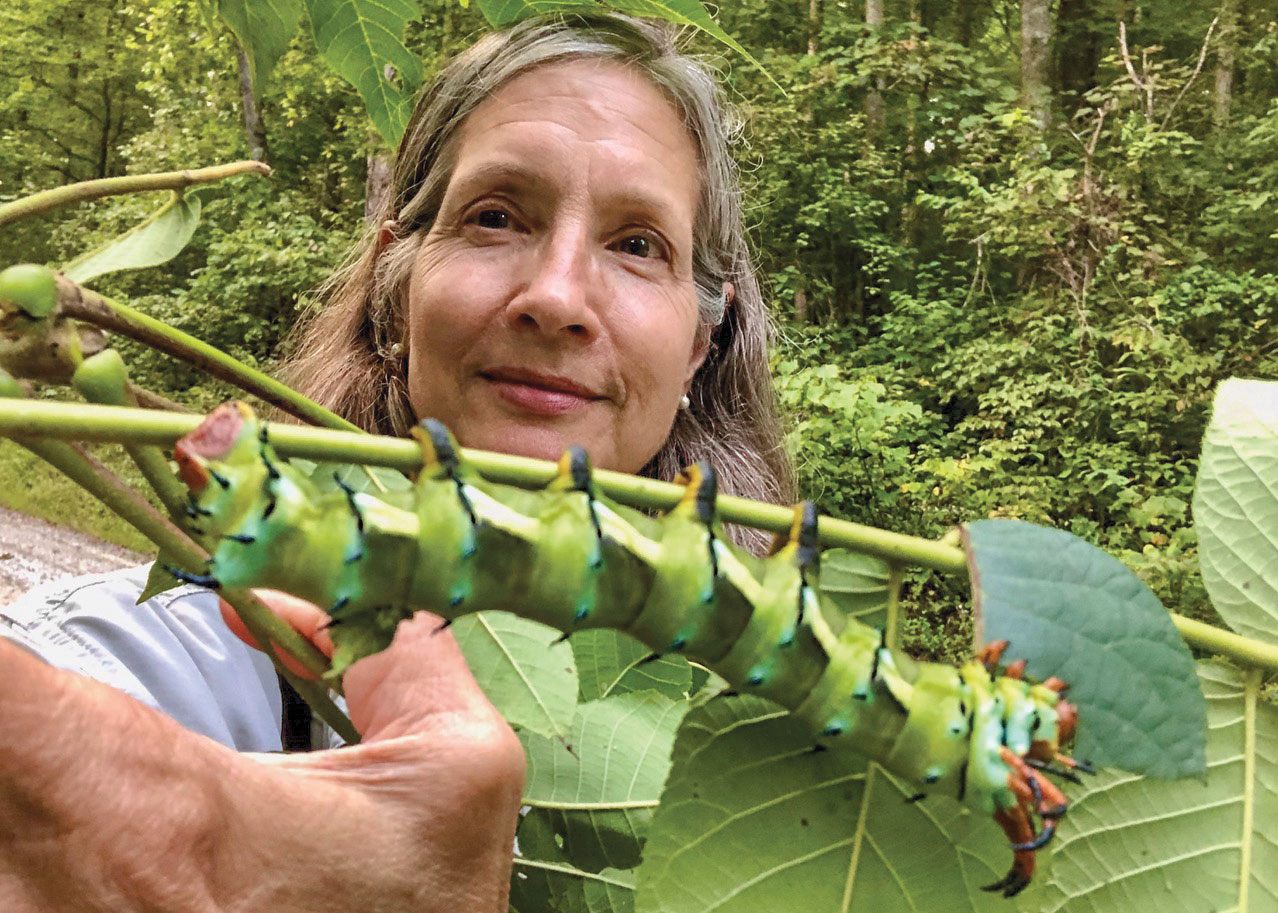
Responsible for the Footwork
How did a retired emergency room physician come to be a respected native plant advocate? And what does it say about the power of lifelong learning?

Birding Through the Seasons: Discover the Joy of Birds While You Learn
If you are new to birding don’t be intimidated! It can be overwhelming at first. Start with what you know and learn as you go. But most importantly, remember what you know about birds is less important than experiencing their many gifts. One way to learn is through an upcoming online course: Birding Through the Seasons. Three live presentations use seasons to guide participants through a year in the life of birds. Learn about identification, song, survival, migration, breeding, and conservation. Each session also features groups of birds common to our area. This course is designed for birders at all levels. It builds knowledge to improve your field skills. It should also increase your appreciation of the incredible beauty, diversity, and contribution to nature that our feathered friends bring.
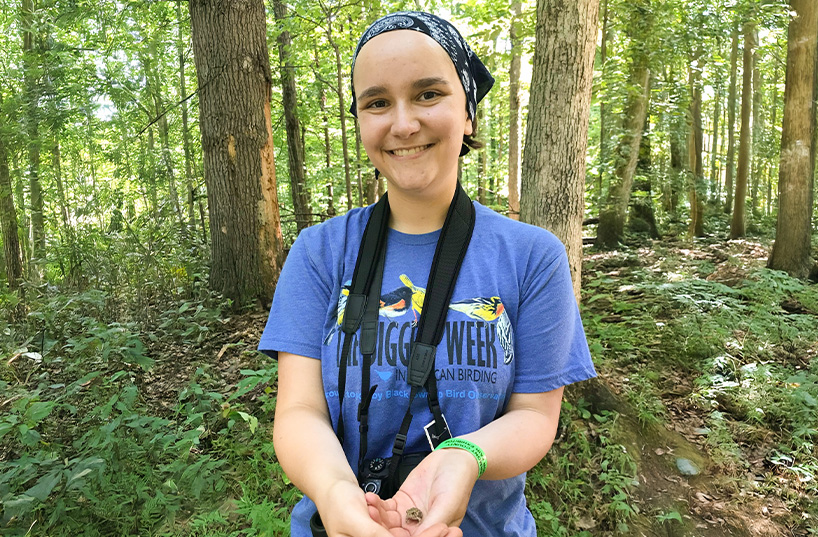
From Camper to Conservationist: Holly’s Journey Takes Flight
Every acre tells a story—and for Holly Erickson, that story began years ago as a young Cincinnati Nature Center camper wandering the trails, discovering bugs under logs, and learning the names of the birds overhead. What she didn’t know then was that those simple moments would grow into a passion that shaped her life.
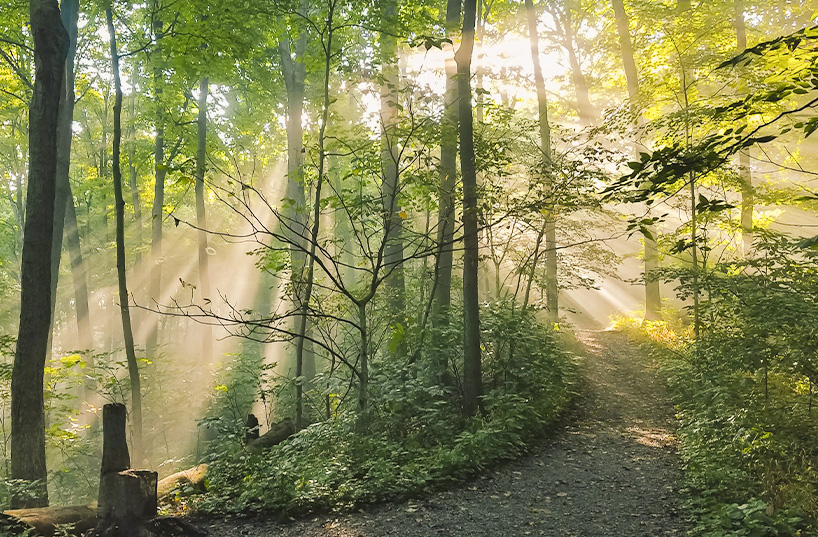
Where Nature Holds Us Through Life's Hardest Moments
Every acre tells a story. Some are the stories of people who come to the forest when life feels heavy, complicated, or overwhelming. For many, the trails at Cincinnati Nature Center have been a place to breathe again, to gather strength, and to feel held by something steady.
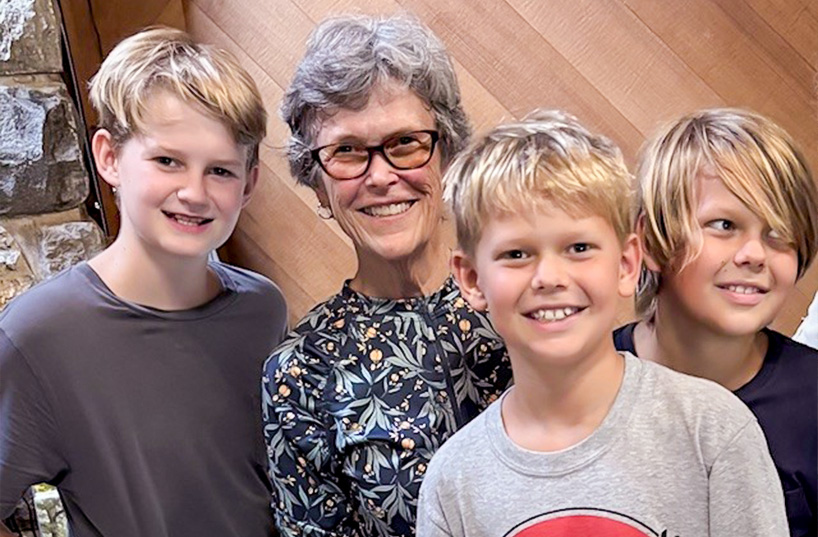
Where Love of Nature Passes from One Generation to the Next
Every acre tells a story—and some are about the connections that grow when families explore together. Betty Withers has been sharing the trails at Cincinnati Nature Center with her three grandsons—George (12), Oliver, and Sam (both 9)—for years, beginning as soon as they could walk. They started in the Nature PlayScape area and gradually moved on to the trails, with the Geology Trail quickly becoming a favorite.
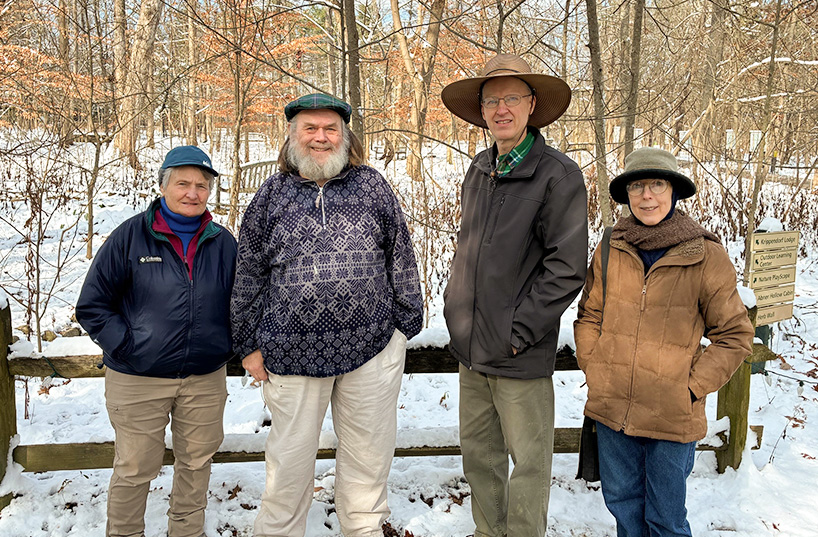
Where Friends and Nature Grow Together
Every acre tells a story. Sometimes it’s not about one person—it’s about the friendships that grow out of time spent in the woods. When you visit Rowe Woods, you might see a lively group of friends—Jeff, E.S., Cathy, and Theresa—on the trail. They meet every week at the Rowe Visitor Center and set out for adventure and discovery.
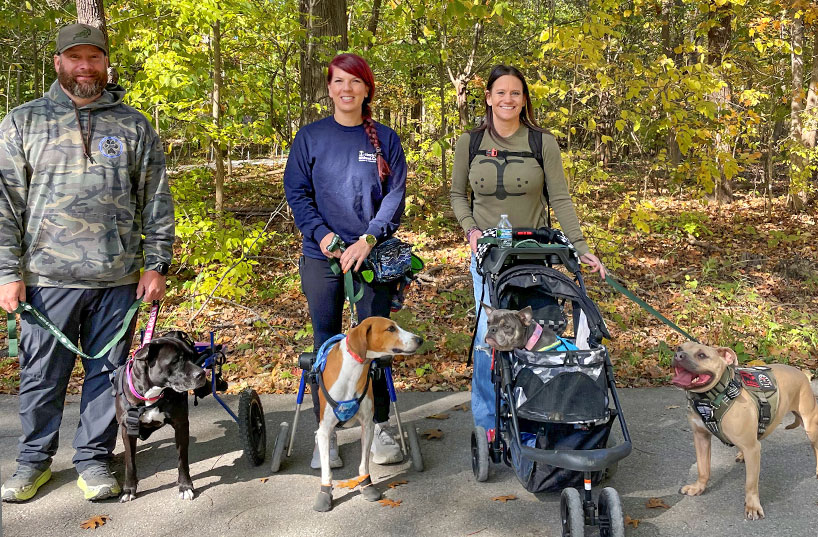
Running, Rolling, and Strolling: This Pack Loves the Nature Center
Every acre tells a story. Some stories aren’t just about the land—they’re about the joy, healing, and friendship it inspires. Meet Laura Person, devoted member, trail runner, and dog mom to three very special pups. On any given day at Rowe Woods, you might find her running 20 miles training for an ultramarathon, jogging alongside her energetic dog Harlow, strolling peacefully with Forrest in his stroller, or adventuring with Lt. Dan, a two-legged therapy dog.
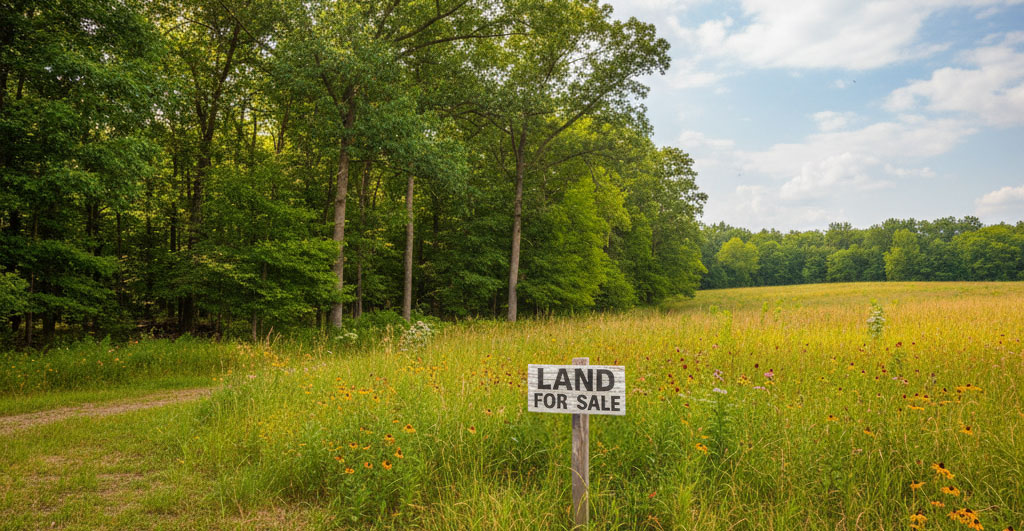
Taking a Stand for the Land
Despite the wishful thinking of conservationist Aldo Leopold, most of our country's land is owned, sold, and developed as a commodity. Land is capital, land is an investment, land is business. But for many of us, land is home. In the suburbs, where country means city, residents often hope to preserve the rural character of their community while still enjoying modern amenities and services. Meanwhile, people seek affordable places to live. This article presents a brief overview of how land use planning works and recommends steps citizens can take to influence win-win solutions for conservation.

Understanding Planned Developments
Residents of Batavia Township, Ohio have recently petitioned to put two issues on this November’s ballot. One is a referendum to reverse the Board of Trustees approval of a particular planned development in a rural area. The other is an initiative to remove Article 36, which guides Planned Developments (PDs), from local zoning regulations. Both of these efforts are an attempt to curb residential growth. This township is close to Cincinnati Nature Center, and my goal was to be curious, not judgmental as I investigated the history, purpose, and design of these type of Planned Developments. What I learned is that PDs can be a valuable tool in preserving green space if citizens, developers, and public officials work together for the common good.
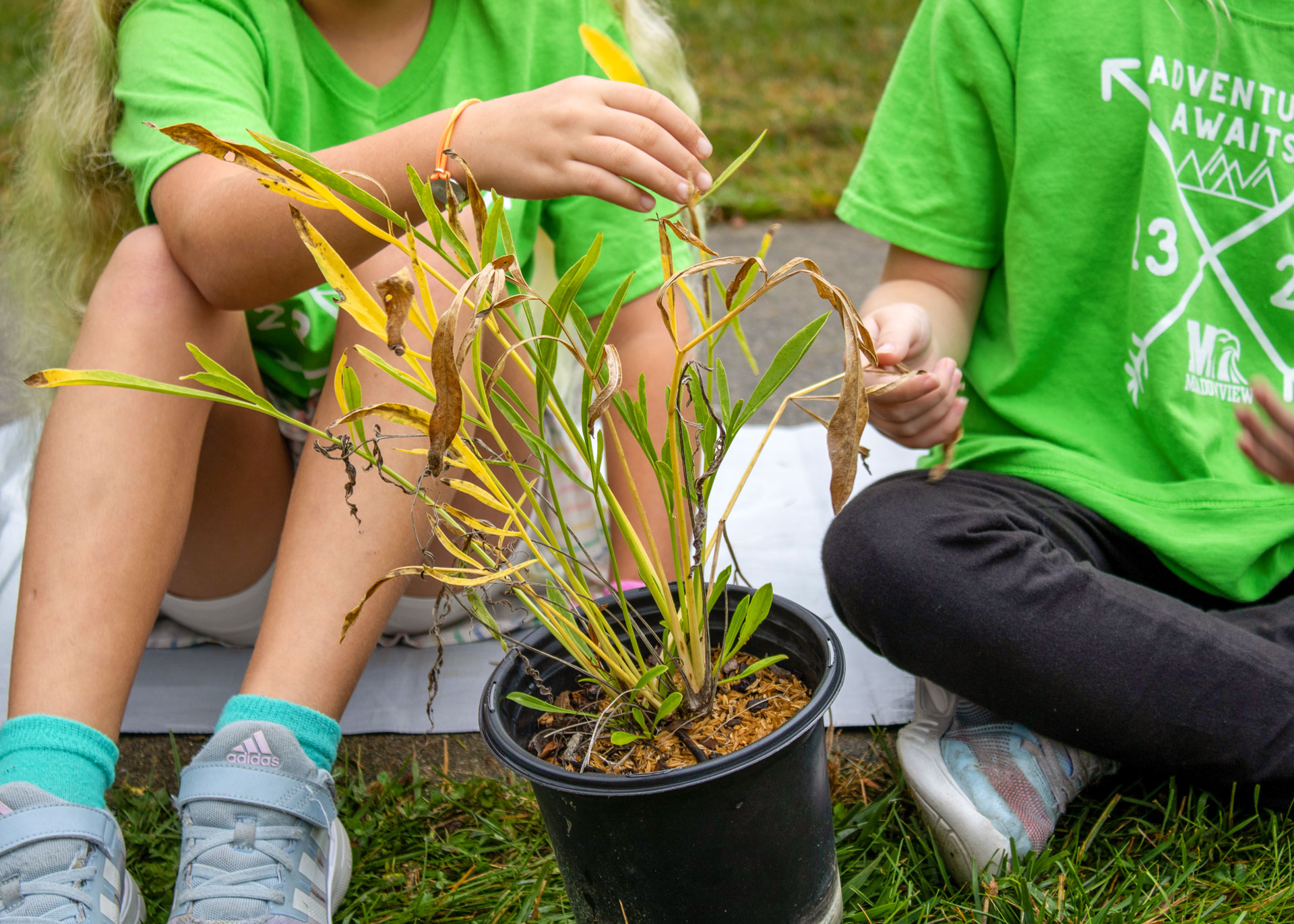
School Gardens: Planting the Seed for a Greener Community
Plant a seed, and so much more than you expect may grow. Over the past 14 years, Kim Forman has seen this idea in action at the Stewart Elementary school garden, where children learn about nature through firsthand experiences.

Core Samples: A Climate Scientist's Experiments in Politics and Motherhood
Climate scientist and policy expert Anna Farro Henderson embarks on a remarkable narrative journey in Core Samples, exploring how science is done, discussed, legislated, and imagined. Through stories both raucous and poignant—of far-flung expeditions, finding artistic inspiration in research, and traversing the systemic barriers women and mothers face in science and politics—she brings readers into the daily rhythms and intimacies of scientific research and political negotiation.

Wisdom from an Award-Winning Volunteer
Spending his retirement on a golf course doesn’t suit Robert Kincses. Instead, he’s taken on projects that include everything from restoring green space for Dayton-area veterans to working against fracking in Ohio. Robert’s efforts have earned him a Philo Festival of Media Arts Award and a Sinclair Alumni Association Service Award, and he was inducted into the Ohio Veterans Hall of Fame in 2014. Read about how this Vietnam-era veteran helps his community and his advice for anyone who wants to do the same.

A Balanced Approach to Garden Design
Native or cultivated plants, that is the question. When it comes to plants, embrace what you love. Gardens planted for nature don’t have to be strictly native gardens, but we can certainly step away from the expected offering of boxwoods, Taxus, and invasive groundcovers. The key to attracting the most pollinators is plant diversity.
_54-CROP.jpg)
Plants, Passion, and Purpose
Marjie Becus is alone in the woods. She moves slowly, careful not to crush any vulnerable plants. A bramble snags her pants, and she takes a wide step to avoid tripping on a vine. Then she spots a wildflower species she has never seen in this location. Read on to learn how this nature lover and amateur botanist has contributed to conservation of native plants.

Where Are All the Monarch Butterflies?
Roughly every week from May through October, you can find Cincinnati Nature Center Monarch Monitoring volunteers carefully inspecting milkweed plants in gardens and prairies throughout Rowe Woods and Long Branch Farm & Trails. On a local level, our volunteers saw 95% fewer Monarch eggs, larvae and pupa than they had in 2023, which was already a lower-than-average year since monitoring began at the Nature Center in 2015. In response to the declining monarch populations, the United State Fish & Wildlife Service completed a Special Status Assessment for monarchs to assess the need for federal protections under the Endangered Species Act. Through the SSA, the Fish & Wildlife Service determined that monarchs are at a heightened risk of extinction within the next century, and recommended that the species be listed as federally “threatened”. This threatened designation could enhance ongoing voluntary efforts toward monarch conservation through several avenues, including increasing monarch habitat.

Lean Into Your Strengths and Have Fun!
Taking action for the environment doesn’t have to feel like hard work if you enjoy what you do. For lifelong learner and teacher Eric Gruenstein, his volunteer and civic path has involved meeting great people, learning new skills and facts, and guiding others. Read on to see how Eric leaned into his strengths and consider what that might look like in your own life. Consider how you might take action for nature in ways that support your passion.

How to Run For Public Office
National politics feels like a spectator sport to many Americans. We vote, then watch and comment from the sidelines as the game gets played. But local government, on the other hand, offers residents a meaningful chance to shape their communities. Township trustees, city or village council members, and school board members oversee issues that impact our daily lives. They direct decisions on zoning, public safety, economic development, parks and recreation, HOA rules, and responsibilities, school policies and more.

Sisters Support Collective Climate Action
We each find our own ways to deal with the bad news of our rapidly changing climate. Experts tell us that personal consumer and lifestyle choices can help, but that large-scale policy changes are essential. How can individuals influence the creation of policy with a positive impact on climate issues? Twins Kelly and Kristi Patterson can offer some guidance. They asked themselves that question about seven years ago and discovered Citizens’ Climate Lobby (CCL). Since then, their involvement and optimism have grown, and they can confirm that people have more power when they work collectively through a unifying organization. Read on to learn more about what it looks like to volunteer for a collective-action organization like CCL.

Tools of Civic Engagement: Citizen Referendums and Initiative Petitions
John Gray is a man with a mission: to protect his organic farm and preserve the rural character of Batavia Township. Along the way, he is learning a lot about tools that citizens can use to try to influence decisions in their communities. Where state statute and municipal charters allow, townships provide residents with the right to initiative (the ability to place a new proposal on the ballot without township board action) and the right to referendum (placing a proposal on the ballot to allow residents to approve or reject existing township board decisions).

Promoting Conservation Through Committees and Councils
An often overlooked but important way to promote conservation and sustainability is by volunteering to help one’s community park commission or environmental advisory council, if your community has one. Learn how Rob Shimp got involved in his community and consider ways you might do the same!
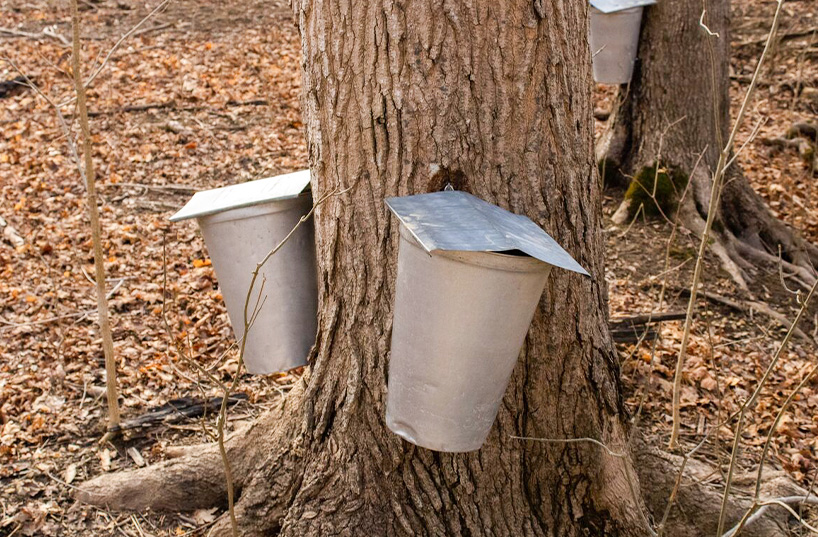
Ode to Maple
The trees are tapped, The sap is flowing, Children peek into sap pails, Their excitement growing. This sweet liquid sap, Flows out of the tree, Then gets hauled to our Sugarhouse, To begin its journey.

Bowling Alone: The Collapse and Revival of American Community
Once we bowled in leagues, usually after work—but no longer. This seemingly small phenomenon symbolizes a significant social change that Robert Putnam has identified in this brilliant volume, which The Economist hailed as “a prodigious achievement.” Drawing on vast new data that reveal Americans’ changing behavior, Putnam shows how we have become increasingly disconnected from one another and how social structures—whether they be PTA, church, or political parties—have disintegrated. Until the publication of this groundbreaking work, no one had so deftly diagnosed the harm that these broken bonds have wreaked on our physical and civic health, nor had anyone exalted their fundamental power in creating a society that is happy, healthy, and safe. Like defining works from the past, such as The Lonely Crowd and The Affluent Society, and like the works of C. Wright Mills and Betty Friedan, Putnam’s Bowling Alone has identified a central crisis at the heart of our society and suggests what we can do.

"Growing" a Movement
When Peggy Spaeth retired, she dedicated much of her new-found time to gardening with native plants and inspiring others to do the same. An email to neighbors activated the first dozen early adopters, and as others saw and admired the beauty of these efforts, they asked to get involved. Attitudes and social norms began to change as homeowners decided to convert turf to pollinator habitat, and Shaker Lakes Nature Center helped provide the plants. Click here to read Barbara Moss’s story about how Peggy Spaeth started a movement for nature.

The Moments That Inspire Me Most
I’ve never considered myself a collector—that’s more like my dad, with his massive rock collection. Yet, without realizing it, I’ve built a collection of my own through my years of work at Cincinnati Nature Center. It’s not a collection of objects, but of moments. As the manager of school field trips, the moments that inspire me the most are when children and teachers step out of their comfort zones and embrace something new in nature. We provide a safe space. They bring the courage. Let me share a few gems from my collection…

Mountain Mint and Magic: A Native Plant Zealot's Story
I’ll never forget the first time I saw dozens of native bees, wasps, and butterflies buzzing around a clump of native mountain mint in my backyard; it was pure magic! I’m a native-plant zealot, so I wholeheartedly financially support organizations like Cincinnati Nature Center that share my enthusiasm.

The Importance of Place: The Eckstein Family and Cincinnati Nature Center
For Neal Eckstein, a love of nature was passed down like a treasured heirloom. His earliest memories of birdwatching began with his grandfather, “Doc” Eckstein, a lifelong member and devoted volunteer of Cincinnati Nature Center for 47 years. Together, they roamed trails, identified birds, and nurtured a shared passion for the outdoors.

Call and Response
Sometimes we are faced with a call we cannot ignore. Even as a teenager, Jodine heard a call to action. It presented itself in the form of a vivid dream. In it, she was an educator dedicated to connecting rural and urban areas for sustainable food production and consumption. Jodine Grundy’s life of community organizing and activism is captured in a quote from Antonio Machado’s Proverbs and Songs #29: “Traveler, there is no path, the path is made by walking.” Throughout her life, her dream helped create her path. Follow her path to see the steps she took to heed the call to action.

Thanksgiving Dinner: Keeping Things Positive
There used to be an old adage that one should never talk about sex, religion or politics in polite company. But when it comes to families, company is not always polite. You may find yourself sitting at the dinner table with people on the far left or right, and some who identify as the“exhausted majority.” How will the conversations go? What will be said and in what tone? And what can be done if things go sideways?

When to Smile and When to Shout: Lessons from The Clifton Deer Project
Activism often gets a bad reputation. The word might conjure images of angry mobs shouting and waving banners. Rowdy protests can draw attention to a problem, but they aren’t the only way and often not the most effective. In reality, people who find a way forward tend to be those who have respectful conversations and leverage existing social capital. Read about how animal lovers Chris Lottman, her husband Bob Rack and neighbor Laurie Briggs did what nobody thought could be done, convincing decision makers to permit them to spearhead an experimental approach to compassionate deer management in Clifton.

Learning Online: Becoming an Ohio Certified Volunteer Naturalist (OCVN)
With a variety of meanings, which definition holds the leading interpretation? A few winters ago, my naturalist journey began with the Cincinnati Nature Center, through participating in the Ohio Certified Naturalist program. This program, designed to increase one's knowledge of the natural world, opened my mind to a realm of wonder.

Autumn's Native Flavors
Apples, pumpkins, and mums—the perfect autumn trio that welcomes dancing leaves and cooler, crisper days. While I admit to being enamored by the rows of mums and pumpkins at every local grocery store, I’ve been tuned in to another unmistakable trio in nature that signals fall’s arrival.

Cincinnati Nature Center Receives Transformational Gift from Hugh Hoffman
In 2023, Cincinnati Nature Center was honored to receive an unprecedented legacy gift from Hugh Hoffman. Midway through the year, we were informed of an extraordinary bequest of approximately $28 million, the largest single donation in the Nature Center’s history. This unrestricted gift, generously left by longtime member Hugh Hoffman, marks a transformative moment for our organization.

Coalitions are Key: Tackling Invasives Through Relationships
Being an agent of change takes more than expertise. It takes tenacity, the ability to build coalitions, and a willingness to understand opposing viewpoints, says plant ecologist Theresa Culley. For nearly two decades she has brought all these skills into play as part of a statewide effort to control invasive species.

For the Love of Home
Often the decision to step into civic engagement is the result of a call to action that can no longer be ignored. For Julie, it was the loss of her home in 2006 that started her thinking that she should pay more attention to the political and economic systems that weren’t working.

Lessons from the Wild Black Raspberry
This spring, soon after the wild black raspberries bloomed, the fruit set that promised a future bounty was obvious. Starting mid-June, volunteers and staff headed out every three days to bring in this year’s crop of wild black raspberries at Long Branch Farm & Trails.

Living Sustainably: Slow Fashion
Amber Ostaszewski encourages people to help reduce negative effects on the environment by being mindful about their clothing choices. Using natural dyes instead of harmful chemicals and natural fibers instead of synthetics can protect vital resources like soil, water, and human capital. Recently, Amber met with The Ripple writer Barbara Moss to explain how “slow fashion” can improve the health of the planet.

Challenging Commercial Food Production with Grassroots Farming
Most Ripple readers feel a special connection to nature. Some, like this month’s featured influencer, have changed their lives to support that connection more fully. Drausin Wulsin says “I was never spiritually fulfilled in regular jobs but in working with the land, I found myself fully engaged and found strength I never knew I had.”

Measuring Influence: Does It End?
Every teacher is an influencer. Every teacher has a legacy. Jon Sounders’ story is an example of how a teacher can advance the cause of nature conservation while inculcating in young people ways of thinking and investigating that serve them into adulthood.

Meet an Influencer: Community Advocacy and Protecting Local Greenspace
Cynthia Duval, a local parks advocate, has been instrumental in opposing various development projects in Burnet Woods, an old-growth urban forest, through her leadership in the nonprofit Preserve Burnet Woods. Despite challenges such as public speaking fears and a full personal schedule, she has successfully rallied community support to protect the park's environmental integrity and continues to fight against new threats like a proposed dog park that could harm the area's ecosystem.
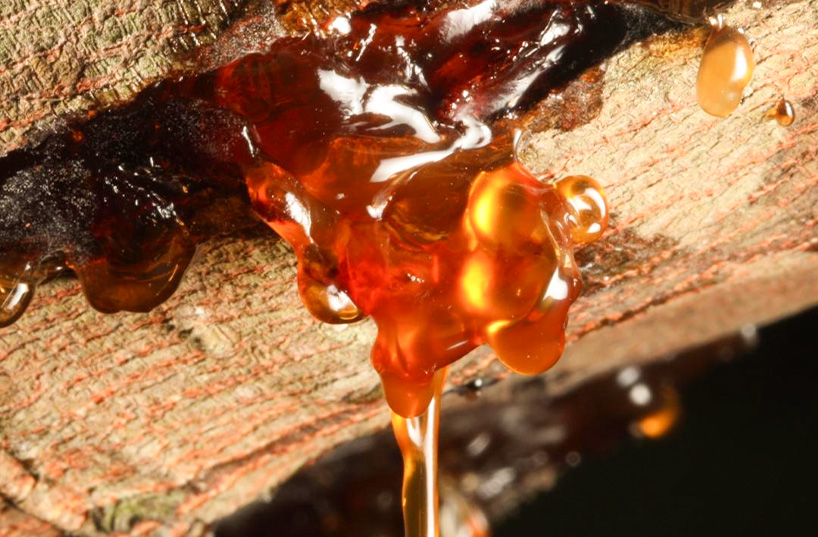
Is It All Sap?
One of the programs offered in winter at the Nature Center is maple sugaring. While the tools have been modified and the steps refined over time, the recipe for syrup hasn't changed. The sole ingredient is sugar maple sap.

Citizen Activism Key to Land Preservation in Loveland
In Loveland, Ohio, a grassroots group successfully prevented the development of 109 acres of historic farmland and woods into a housing project by organizing and influencing local government decisions. Their efforts led to the conservation of the land, supported by grant funds awarded to Cardinal Land Conservancy, highlighting the power of community activism and strategic engagement in local governance.

Paying It Forward
Steve Inglish, a dedicated volunteer at the Cincinnati Nature Center, has become a significant influencer in promoting native plant gardening following his retirement. Mentored by experts and driven by his passion for environmental conservation, Steve uses his skills in public speaking and education to inspire others to adopt environmentally friendly gardening practices, continuing to "pay it forward" through public talks and leadership in community science projects.

Looking Out My Back Door
Elaine Sugawara discusses observing the early signs of spring through the budding and sap flow of a red maple tree in her neighbor's yard, highlighting the tree's adaptation to cold and its role in signaling the upcoming change of season. She notes that while sugar maples are famous for syrup, red maples can also produce syrup, albeit requiring more sap due to their lower sugar content.

Five Tips for Winter Hiking
Kelly Volz offers practical advice for winter hiking in her article, emphasizing the importance of wearing layered clothing and warm boots, using traction cleats for added stability, planning a manageable route, utilizing trekking poles, and taking time to appreciate the winter landscape. These tips aim to enhance safety and enjoyment while hiking in cold conditions.

Season's Readings
The blog post from Cincinnati Nature Center suggests a variety of books recommended by its staff and volunteers, ideal for winter reading. These recommendations include titles on natural history, scientific exploration, and environmental issues, aiming to enhance knowledge and broaden perspectives during the colder months.

Souvenirs from the Boardwalk
Jim Kesner recounts his experiences as a trail runner at the Cincinnati Nature Center, where he found solace and adventure over three decades. He shares memories of running in all weather conditions, the goal of covering every trail in one run, and capturing photographic souvenirs from the same spots on the boardwalk, documenting the ever-changing natural scenery around Powell Crosley Lake.

Healthy Planet, Healthy Lives
Chris Christensen, a dedicated advocate for plant-based living and a founding member of Plant-Based Healthy Cincinnati, educates on the health and environmental benefits of reducing meat, eggs, and dairy in one's diet. Through classes, social events, and online platforms, Chris promotes plant-based diets as a means to improve personal health and decrease greenhouse gas emissions, supporting these claims with scientific research and personal testimony.

What's the Recipe for a Wildflower Meadow?
Melanie and Zak Scheer created a wildflower meadow on their eighteen-acre property to provide educational value, enhance the environment, and attract wildlife, supported by grants and expert advice from conservation programs. Their efforts led to the establishment of a thriving meadow that promotes native plants and supports local fauna, earning their property a certification as a wildlife habitat.

Change Agents: Beth and Bob Staggenborg
Beth and Bob Staggenborg are showcased as passionate environmental advocates in an article by Bebe Raupe, featured in both an online blog and the November 3, 2023 issue of "The Ripple." The couple, long-time members of the Cincinnati Nature Center, are dedicated to promoting sustainable practices, particularly in food consumption, and engage the community through activities like hosting meatless meals and volunteering in various environmental education roles. Their efforts extend beyond local outreach, with Bob also sharing ecological insights through his "Nature Guys" podcast.

Native Landscaping: A Mosaic of Colors
Peter Wimberg’s article discusses the native-oriented landscaping at Wimberg Landscaping's headquarters, emphasizing the use of native plants to support local ecosystems and provide year-round visual interest. This approach not only differentiates their design but also promotes an eco-friendly, diverse habitat for wildlife, while encouraging others to rethink conventional landscaping practices to include native species and less chemical usage.
.jpg)
At Long Branch, “Farm” is Still a Verb
Long Branch Farm, initially a vibrant educational farm offering hands-on agricultural experiences, ceased its traditional operations in 2005 due to changes in state education standards and high maintenance costs. Since then, efforts have shifted towards native plant education and foraging, with the establishment of perennial polyculture plots that focus on native edible plants, blending conservation with visitor engagement and education.

Protecting What She Loves
Sheila Cox-Riley, an avid astronomer and amphibian enthusiast living near East Fork State Park, successfully advocated for road closures during amphibian mating season and addressed light pollution concerns from a nearby manufacturing complex to protect her interests in stargazing and amphibian conservation. Her approach involved persistent, respectful communication with local authorities and educating her community about the benefits of conservation and proper lighting.
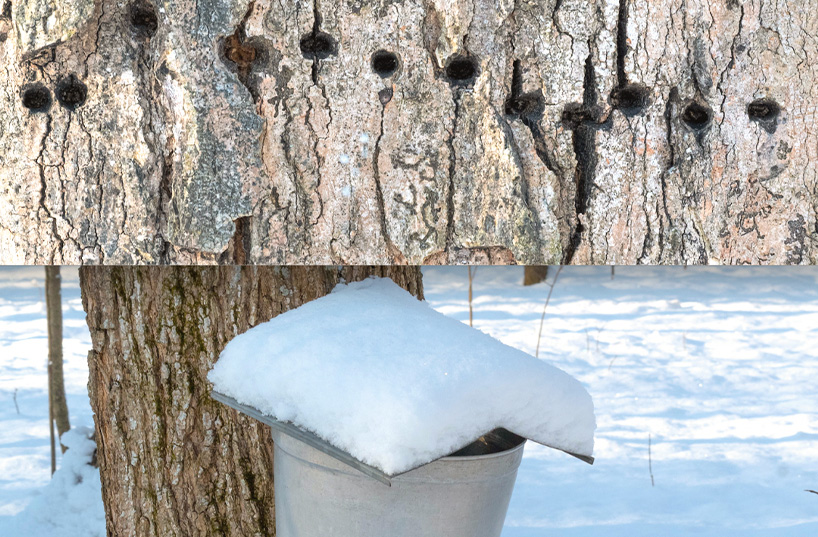
Tapping in the Woods
What do these two pictures have in common? Trees and holes are the obvious answers.In winter, many creatures are hungry for food to keep them alive. Our sugar maples provide a sweet solution.
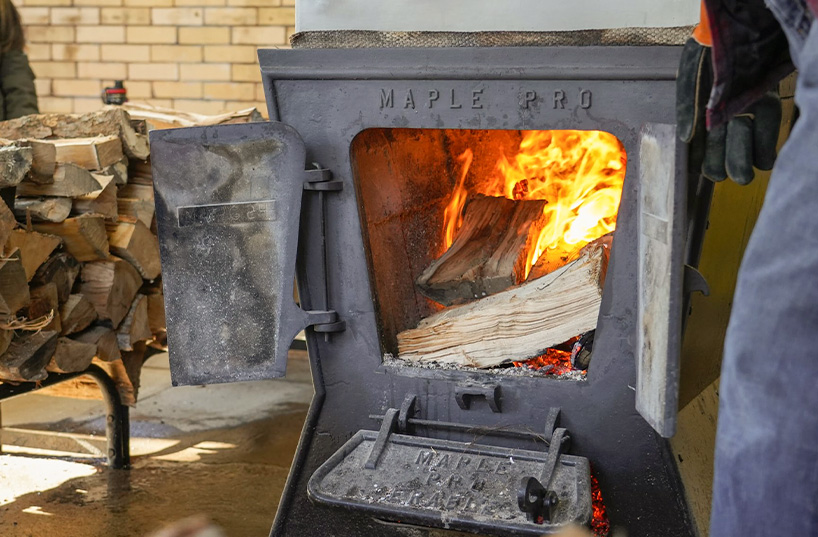
Maple and the Monster
For a short time each year, our sugar house is home to sweet smells, sticky syrup, and a monster. A creature with flaming teeth, a hot temper, and an unrelenting appetite for wood.
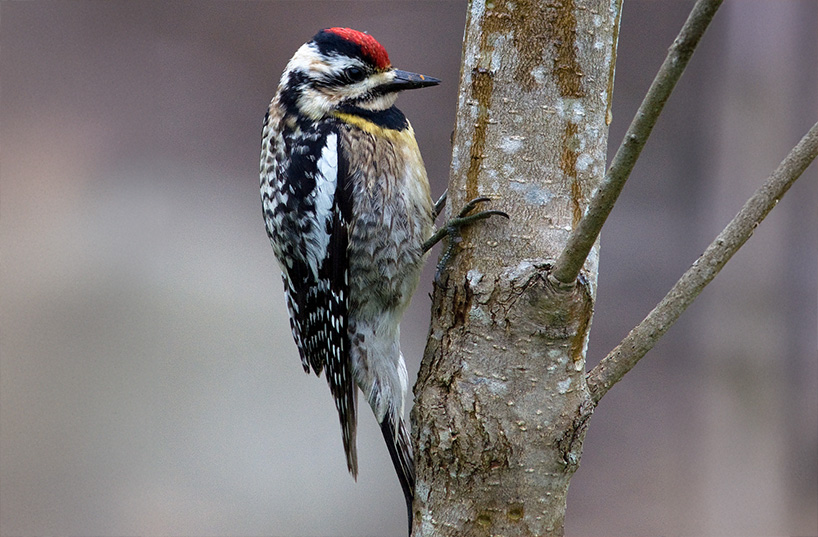
Tappin’ for Sap
With maple season on the doorstep, it's all hands on deck at the Nature Center, preparing our buckets and spiles, tapping our trees, and kicking off the maple season.

Recipes from the Forest: The Best Maple Toffee
What is the importance of foraging and the connection it fosters between humans and nature? This article introduces a native edible plant program that includes foraging forays, educational hikes, and cooking events. The post also features a recipe for "The Best Maple Toffee" using ingredients like maple syrup, butter, and pecans.

A Seriously Awful Weed
Lesser Celandine (Ficaria verna) is an invasive plant native to Europe, North Africa, and parts of Asia, known for its aggressive growth that threatens native vegetation in North America. It is illegal in Ohio to distribute or propagate it due to its detrimental impact on local ecosystems, and removal involves careful digging or the use of herbicides to eliminate its pervasive tubers and prevent regrowth.
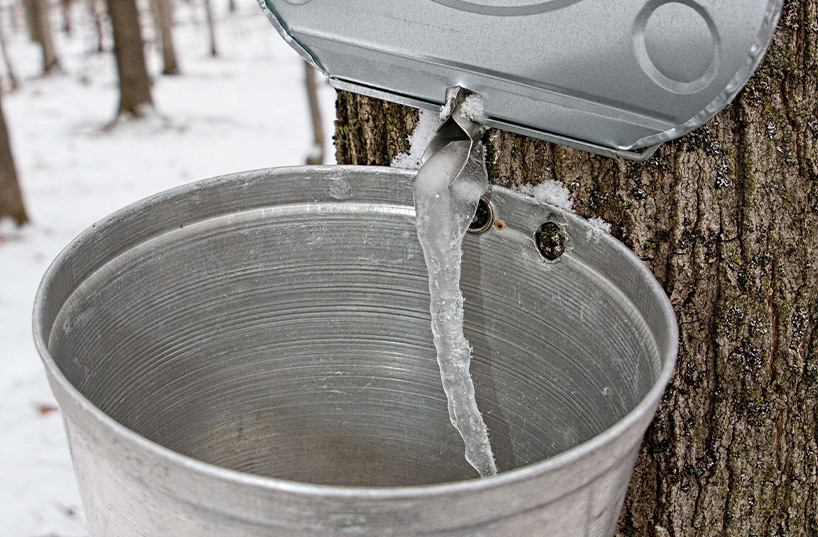
Sapsicles: Source of Discovery
Wintertime is not often the season we think of when craving an icy sweet treat, yet “sapsicles” during maple season are the equivalent to popsicles after a hot summer’s day at the beach.

Shivering Moths
It’s no secret that humans love sweet maple sap, but if you peek under the pail lids, you’ll likely find at least one other species taking advantage of this plentiful sugar. A brown, fluffy moth is taking a swim in the sap!





